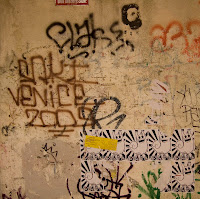A pressing need, following Michael Gove’s speech to BETT in January, has been the need for defining a new direction for the ICT curriculum.
In the purest sense, the speech does require a complete rethink of the curriculum: blank paper, sharpened pencil and all. I suspect the outcome of these exercises, both nationally and in school-based conversations, will not be a wholesale scuttling of the existing provisions and instead focus on retaining what is serviceable from what we are using at present as a part of the new intentions. A recent glance at the soon to be withdrawn Programme of Study reminds me of how I once saw the document as woolly; however, perhaps a more charitable way of looking at it is to see how much flexibility it gives for delivery of learning opportunities and assessment methods. Perhaps the sobriquet of “Ahead of its time” is going a little too far!
Whatever is drawn up is certain to involve some forms of programing experience and awareness of hardware and its functionality. With the rise and rise of the Raspberry Pi project, it seems inclusion of it in the curriculum is inevitable, if you haven’t seen the videos from Beeb@30, then follow the link:
http://www.youtube.com/watch?feature=player_embedded&v=kj91taKHlmM
It may be the effect of nostalgia always being preferable to the hard historical facts in that much of the intro is a shared history, but I feel Eben Upton does make a compelling case for using the device in the classroom; in reality things get better, the Pi doesn’t have to be programed by code, it is shipped with a distribution of “Scratch” which should allow departments to start introducing programing to younger children or to incorporate some aspects of programing in a curriculum devised for the less academic student.
 |
| Waiting for the writing on the wall… |
What support is there? Not much at present it seems, the commission’s report is not due to be published until Spring next year and publishing houses are unlikely to commit themselves until there is clear evidence of at least some indication of direction of travel. With waning powers of LEA control and release from the Programme of Study this could be a time to savour; an ideal moment to open a decent bottle and consider what would curricular content would benefit the student, an occasion to put the real purpose of our profession centre stage.
John Giles
John has taught in various secondary schools for over 30 years, including roles as ICT coordinator and Head of ICT. He is also an established author and has worked as an examiner and moderator for a number of exam boards.


